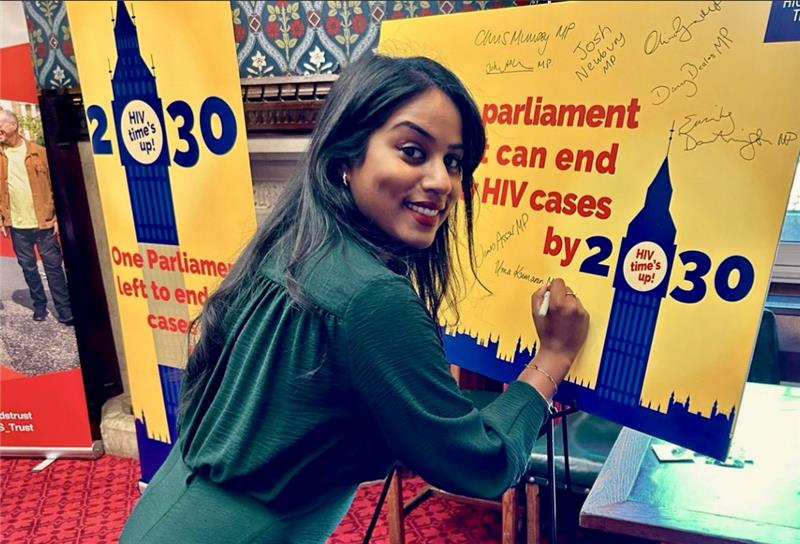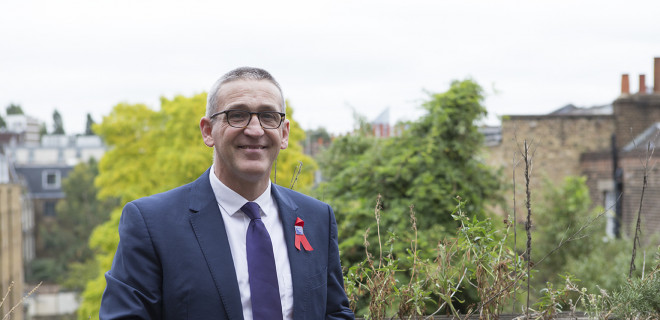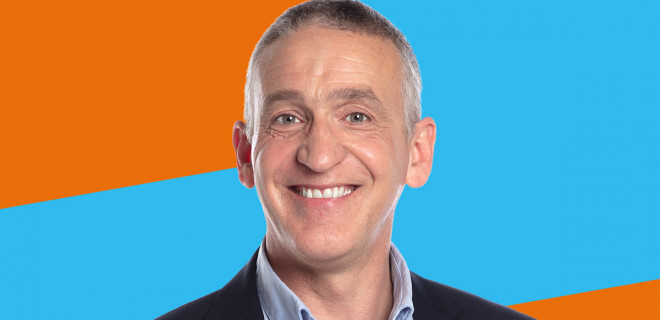
As a young student, my first campaign cause was HIV. At the age of 16, me and my classmates held a talent show to raise money and awareness for World AIDS Day.
Now, it seems apt, as I represent Stratford and Bow in Parliament, an area with one of the highest prevalences of HIV in the country. For too long, we haven’t had the hope that we need, but I’m proud that I serve in the parliament that could end the epidemic – before 2030. And I am clear that the road to reaching that goal will run through my constituency.
Getting there will take three things.
First, we have to help find everyone living with undiagnosed HIV – and make sure they can access the care they need. An ‘opt-out’, rather than an ‘opt-in’ approach to HIV testing has been game-changing on this, including in my local hospitals. It’s a simple principle. If you have your blood taken when you pass through A&E, it is tested for HIV, Hepatitis B and Hepatitis C, unless you ask for it not to be. In two and a half years, that approach has found 82 people who didn’t know they were living with HIV just in Newham Hospital and the Royal London, which serve my constituents.
That’s why I am delighted that on Thursday, Prime Minister Keir Starmer announced that the government would be investing a further £27 million into that programme, ensuring it can continue in my local hospitals, as well as in the 79 others that will benefit. It will fund millions of HIV tests in hospitals across the country this year. A significant first step to ensuring England gets on track to meet our goal.
Sadly, just as many people in my area have been found through this opt-out HIV testing programme who had been diagnosed, but were not accessing life-saving treatment. Sometimes this cohort is referred to as having been ‘lost to care’, but really, we know who they are, but they are not getting the support they need to access care. Stigma, poverty and other
complications in their lives mean they are at risk of their health deteriorating. For many, it already is.
Second, we have to establish a national programme to address this quiet crisis – investing in the case-finding, care-coordination and support that’s needed to return people to care.
Finally, we have to get the lifechanging HIV prevention pill - PrEP - to all who could benefit from it. This game-changing drug eliminates the risk of HIV transmission. It’s the reason we have all the tools we need to end new cases, but at the moment it’s only available through sexual health services. Women are currently not benefitting in any significant numbers, despite making up 1 in 3 new HIV diagnoses – and no wonder, when you can’t access PrEP in the places you access contraception. Why not make PrEP available online, in GP services, in pharmacies? That would free up pressure on overstretched sexual health services and improve access for those who will never go to one.
I was proud to stand on a manifesto that made a commitment to ending new HIV cases. Public Health Minister Andrew Gwynne has committed to publishing a new HIV Action Plan for England by the summer, to do just that. He has acknowledged that frustratingly we are currently not on track to meet that goal, so it’s crucial that we accelerate action now. He has my full backing, and many fellow MPs, to do so.
To me, this day has always been more than a ribbon. Because as I reflect on my over 20 years of supporting this cause, I also think of what it would have meant to all those we have lost if we could stop HIV in its tracks. This World AIDS Day, I stand against HIV stigma, promise to support people living with HIV and pledge to use my position to press for action to end new HIV cases. I hope you will join me.
To show your support for Terrence Higgins Trust this World AIDS Day, donate now.



